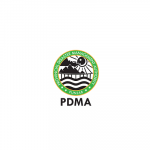Islamabad: Finance Minister Muhammad Aurangzeb announced on Monday that the preparation of the federal budget will now fall under the Finance Division, in coordination with the Tax Policy Office (TPO), instead of the Federal Board of Revenue (FBR).
“The Tax Policy Office is now moving to the Finance Division. The FBR has nothing to do with policy matters,” Aurangzeb said while addressing a conference titled “Unlocking Capital Market Potential for Banks.” He confirmed that the 2026 federal budget will be drafted under the Finance Division and the TPO.
Read: FBR to suspend, blacklist sales taxpayers blocking access
The move is part of the government’s broader economic reform agenda, aimed at separating policy from tax administration. Established in February 2025, the TPO operates from the Finance Ministry and is tasked with developing tax policies and proposals through data modelling, revenue forecasting, and economic analysis.
Aurangzeb highlighted several reform measures introduced in recent months, including the tariff policy, the National Electric Vehicle Policy, the digital policy, and the cashless economy initiative. He also revealed that work is underway on a new industrial policy, which will soon be presented to the federal cabinet.
The finance minister stressed that upcoming tariff reforms for export-oriented industries would be locally driven. “I want to be very clear that the IMF has nothing to do with it. Tariff reforms are a home-grown agenda to make our industry more competitive,” he said.
Read: FBR starts FY strong, meets first month target with PKR 755 bn revenue
Aurangzeb also proposed the creation of a Capital Market Development Council to mobilise domestic funding through the Pakistan Stock Exchange (PSX) and other financial institutions. The PSX recently crossed the 140,000-point mark for the first time, reflecting strong investor confidence.
Later in the day, while inaugurating the PHC Job Fair and Education Expo 3.0 at the Expo Centre, the minister said Pakistan had entered a growth phase after achieving macroeconomic stability. He noted that GDP grew by 2.7% in FY25, up from 2.5% the previous year, with a growth target of 4.2% for FY26.
He further pointed out that global ratings agencies Fitch, S&P, and Moody’s have upgraded Pakistan’s credit rating, calling it a sign of confidence in the country’s economic direction.
Read: FBR introduces AI-powered RMS to streamline imports, exports
Aurangzeb concluded that Pakistan must avoid a “boom-and-bust” cycle and instead focus on sustainable and inclusive growth, while the corporate sector should play a greater role in supporting economic momentum.







